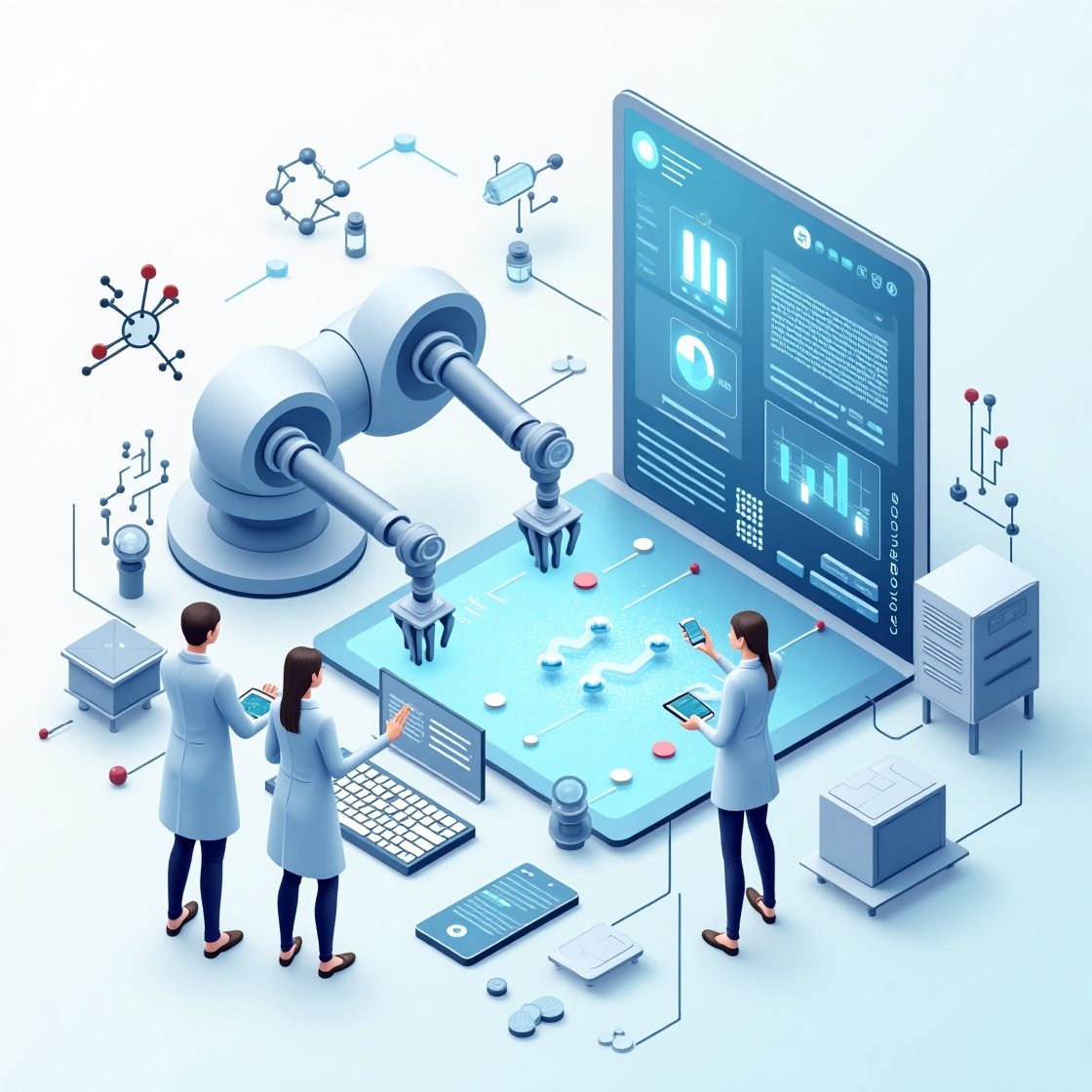Introduction
As the pharmaceutical industry faces growing pressures to innovate and increase production efficiency, Artificial Intelligence (AI) is emerging as a key catalyst for change. With the potential to revolutionize drug discovery, streamline manufacturing processes, and ensure stringent quality control, AI provides transformative solutions that meet the evolving demands of the healthcare sector.
Current Applications of AI in Pharmaceutical Manufacturing
Drug Discovery and Development
AI is significantly speeding up the drug discovery process by analyzing complex biological datasets and predicting molecular interactions. Machine learning algorithms can sift through vast amounts of data to identify promising drug candidates more efficiently than traditional methods. This acceleration not only reduces the time required to bring new drugs to market but also cuts down on associated costs.
Process Optimization
AI-driven analytics are crucial in optimizing manufacturing processes by continuously monitoring production parameters. These intelligent systems ensure consistent product quality and help minimize waste, energy consumption, and operational costs. By refining production processes, AI contributes to more sustainable and efficient pharmaceutical manufacturing practices.
Benefits of AI in Pharmaceutical Manufacturing
Increased Efficiency
AI technologies streamline various phases of pharmaceutical manufacturing, from initial drug discovery to large-scale production. By automating repetitive tasks and offering predictive insights, AI significantly boosts operational efficiency, enabling companies to adapt more swiftly to changing market demands and emerging health challenges.
Enhanced Quality Control
AI systems play a crucial role in maintaining high standards of quality control by detecting anomalies and deviations in production processes. This proactive monitoring ensures that products consistently meet regulatory standards, minimizing the risk of recalls and enhancing patient safety by ensuring the reliability and effectiveness of pharmaceuticals.
Challenges and Considerations
Regulatory Compliance
The integration of AI into pharmaceutical manufacturing presents significant challenges related to regulatory compliance. Companies must ensure that AI systems adhere to stringent industry standards and guidelines to avoid potential legal and ethical issues. Navigating the regulatory landscape requires careful documentation and validation of AI processes to gain approval from health authorities.
Data Security
AI relies heavily on large volumes of sensitive data, making data security a critical concern. Pharmaceutical companies must implement robust cybersecurity measures to protect proprietary information and ensure patient privacy. Safeguarding data integrity is essential to maintain trust and prevent unauthorized access that could compromise both company assets and patient safety.
The Future of AI in Pharmaceutical Manufacturing
The future of AI in pharmaceutical manufacturing is set to usher in groundbreaking advancements. Predictive analytics will likely become more sophisticated, allowing for better forecasting of manufacturing needs and potential disruptions. Personalized medicine, driven by AI, will tailor treatments to individual genetic profiles, enhancing therapeutic outcomes.
Moreover, innovations like digital twins—virtual replicas of physical systems—will enable more precise simulations and optimizations of manufacturing processes. Advanced robotics and automation, guided by AI, will further enhance precision and efficiency, reducing the margin for error and increasing production speed.
Conclusion
AI is poised to transform pharmaceutical manufacturing by offering solutions that enhance efficiency, quality, and innovation. While challenges such as regulatory compliance and data security persist, the potential benefits of AI in the industry are immense. As technology continues to advance, embracing AI will be crucial for companies aiming to stay competitive and meet the growing demands of the healthcare sector. By integrating AI into their operations, pharmaceutical manufacturers can expect to achieve new heights of productivity and innovation.

